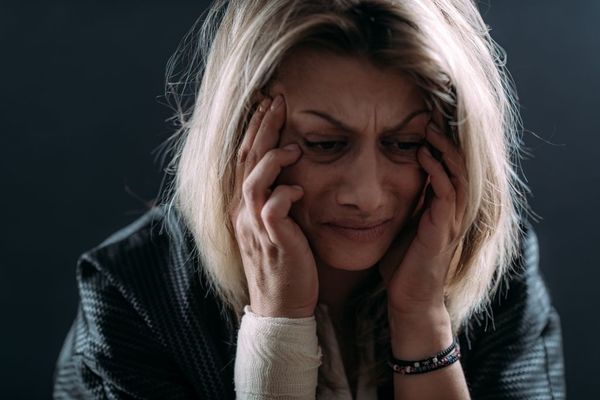
Getting into an automobile accident is stressful for anyone. Suddenly, there are insurance companies to deal with, doctors appointments to get to, and repairs to be made before you can drive your car again. In many cases, you may find yourself suddenly saddled with medical bills and car repair bills, and you may not be able to work while you recover from your injuries. Overnight, your financial situation may seem like it’s gotten out of control. It is at this point that many people look into hiring an experienced auto accident legal team to help get them the compensation they need to put their life back together.
But what most people don’t realize is the mental effect that a traumatic car accident can have on a person. Sometimes, the mental damage that is done to a person far exceeds the physical damage after an automobile crash. In the more extreme cases, the crash survivor can develop PTSD.
What is a PTSD and What are the Signs?
Post-Traumatic Stress Disorder (PTSD) occurs after an event that is traumatic enough to cause disabling anxiety and memories long after the event. Sometimes, these stress symptoms can become chronic. The diagnostic criteria for PTSD look for two indicators in the event itself.
- That the person experienced an event, either physically or by witnessing it, that was life-threatening or is perceived as being able to cause serious injury to the person or others; and
- The response from the person who experiences the event involves horror, helplessness, or fear.
From there, the person consistently re-experiences the event in different ways.
- They may have an intense psychological reaction if they are exposed to something that reminds them of the traumatic event.
- They may have a sense of reliving the experience through illusions, hallucinations, and flashbacks.
- They may suffer from recurring nightmares about the event.
- They can experience stressful recollections of the event that may include perceptions, thoughts, or images.
Here are some warning signs that indicate a person may be suffering from a post-traumatic stress disorder.
- The person begins to detach themselves emotionally from the world around them. They may begin to feel depressed, hopeless, or may develop an inability to feel emotions altogether.
- The person avoids people, places, or circumstances that they associate with the trauma. In addition, they may develop social phobias or have panic or anxiety attacks.
- The person may develop insomnia or disturbed sleep, paranoia, or lose their ability to focus.
As with many psychological afflictions, PTSD can manifest itself in a variety of ways. There is a broad spectrum of symptoms that begin on the less intense end of the spectrum and progress all the way to debilitating anxiety and hallucinations. Each victim experiences PTSD a bit differently, so it is important to pay attention to symptoms and see a doctor for diagnosis and treatment.
What Is Your Risk of PTSD after an Accident
Automobile accidents are the most common reason that the general public may develop post-traumatic stress disorder. Only those serving active duty in the military are as susceptible.
According to an article published by The Journal of Nervous and Mental Disease, one study showed that 39% of auto accident survivors develop some form of PTSD. But why do some people involved in accidents get PTSD while others do not? Here are some factors that increase the odds of developing this disorder.
- If you have had psychological adjustment problems in your past
- If your family has a history of psychopathology
- If you have had prior trauma
- If you lack social support after the accident
- If your emotions ran high during or immediately after the accident (e.g., guilt, shame, horror)
All of these factors can increase the chances that you will develop PTSD after a traumatic auto accident.
Comorbidities
According to an article published by the US National Library of Medicine National Institutes of Health, in addition to a post-traumatic stress disorder, many victims develop other psychological issues after a motor vehicle accident. Some are particularly common like mood disturbances and major depressive episodes, the occurrence of which one study suggests is as high as 48%. Anxiety disorders are also common comorbidity and appear in 7% to 31% of those with PTSD after a motor vehicle accident.
Get the Help You Need!
If you were in an automobile accident and have developed signs of PTSD, do not wait to seek professional help. There are a number of therapies such as eye movement desensitization and reprocessing (EMDR) that can help get you through any PTSD episodes that may occur. There are also a number of medications that may help you manage your PTSD symptoms while you are in the process of healing.
In addition to getting the medical and psychiatric help you need, you should also discuss your claim with an experienced automobile accident legal team. PTSD is a form of pain and suffering, and it is one of the many things that you can receive compensation for after an accident, along with reimbursement for medical bills and lost wages. Your attorney will likely advise you that it is not in your best interest to settle your case too quickly. PTSD can have long term effects, and you don’t want to settle until you have a clear picture of how long it will take to heal and you receive the compensation you need to complete your treatments.
We’re Here to Help
If you’ve been in a car accident, there is no time to waste. Get medical help as soon as possible after the crash. This will help you on the road to healing, as well as document the physical and psychological injuries that you sustained as a result of the impact. Then, be sure to discuss your case with our experienced lawyer at Brett McCandlis Brown & Conner, PLLC. They are ready and able to discuss the facts of your case and make an assessment of how we can best help put your life back together. If your medical bills are piling up, we will work to get you every cent that your case is worth and take all the burden off of you in the process. Your job is to heal, ours is to fight for your rights. Call or fill out our online contact form today for a free, confidential case consultation.


